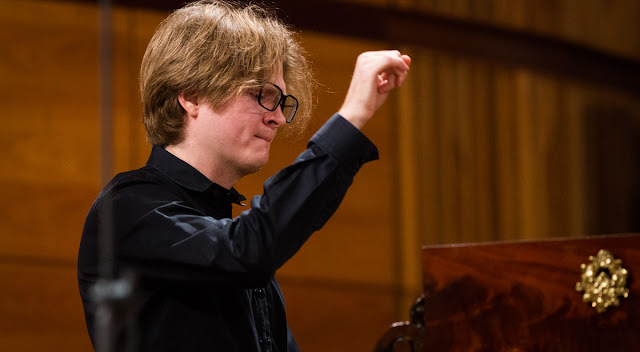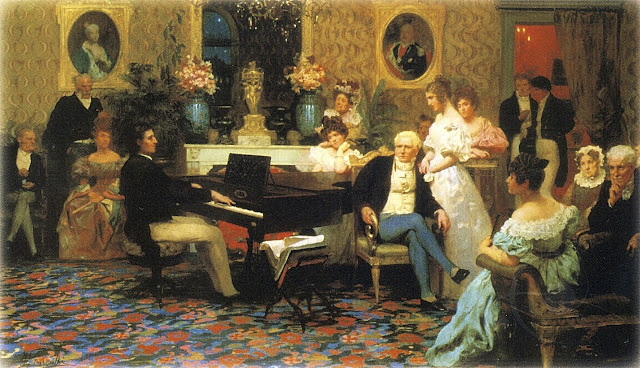 |
| Dmitry Ablogin |
Haydn +
This is the title under which the magnificent Freiburg Baroque Orchestra celebrated the start of its new concert season on October 8th. In the fully
occupied Freiburg Concert Hall, the FBO played one of its heartfelt composers:
Joseph Haydn's Symphony No. 101 in D major, nicknamed 'The Clock',
is on the program, as well as the overture to Haydn's opera 'Armida',
two works that Haydn wrote on his legendary concert tours to London in 1792 and
1794 brought great acclaim.
In addition they played music by a composer whom the FBO had completely rediscovered - Haydn's
contemporary and protégé Johann Nepomuk Hummel, a child prodigy at the piano,
later an acclaimed piano virtuoso and visionary composer.
The FBO performed Hummel's
second piano concerto in A minor Op.85 (1816) with the pianist Dmitry Ablogin as
soloist. They have a close stylistic connection and share a special and spontaneously creative musical relationship. He chose a superb copy by Christoph Kern of an 1825 historical fortepiano originally by the Austrian-German piano maker Conrad Graf (1782-1851) for his solo
part. The concertmaster of the Freiburg Baroque Orchestra Gottfried von der
Goltz conducted the concert.
Dmitry Ablogin is one of the great period pianists of our time
 |
| Goethe's idyllic Summer House in Weimar by the River Ilm |
Weimar is one of my favourite cities. Why do I mention this? Well, one of my favorite composers lived and worked there. Johann Nepomuk Hummel (1778 – 1837) was an Austrian-German composer and virtuoso pianist. His music reflects the transition from the Classical to the Romantic musical periods. He is an underestimated musical genius of the greatest inventiveness both in chamber music and piano concertos. Hummel at the age of eight was taught and housed by Mozart for two years free of charge in Vienna. He made his first concert appearance at the age of nine with Mozart in Dresden (1787) in one of Mozart's concerts.
Hummel, among other distinguished positions in an incredibly distinguished career, held the position of Kapellmeister in Weimar from 1819 to 1837. He formed a close friendship with Goethe and read the poetry of Schiller, who also lived there but had died in 1805. During Hummel's stay in Weimar he made the city into a European musical capital, inviting the best musicians of the day to visit and perform. He brought one of the first musicians' pension schemes into existence and was one of the first musicians to agitate for musical copyright to combat intellectual piracy.
Hummel also had an incalculable influence on the style brillant earlier compositions of Fryderyk Chopin - the concertos and many variations, rondos and other solo works. He performed in Warsaw in 1828 to great acclaim, members of the audience standing on their chairs in order to better observe how he performed his famous trills. The composer developed a close relationship with Poles and admired the pianist Maria Szymanowska greatly.
Hummel was a chamber musician of the greatest genius in his own rarely performed chamber compositions. This concerto is a graceful flight over a chiaroscuro landscape fluctuating with light and shade. It sounds almost as if it had been originally scored by Mozart for these instrumental forces.
 |
| Johann Nepomuk Hummel (1778 – 1837) |
 |
The grave of | Johann Nepomuk Hummel (1778 – 1837) |
in Weimar
|







Comments
Post a Comment